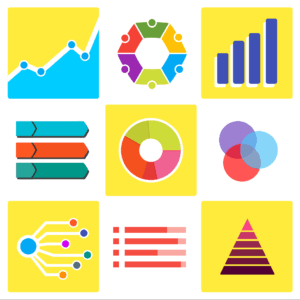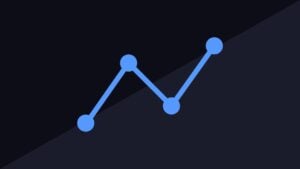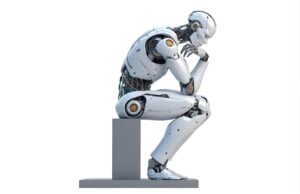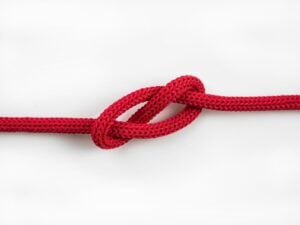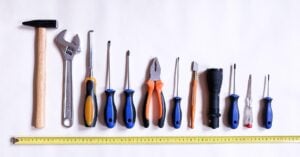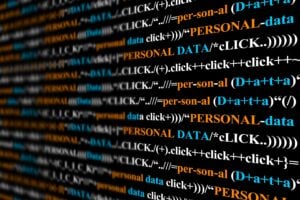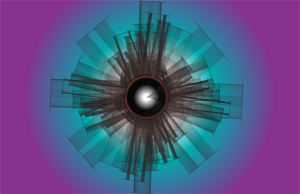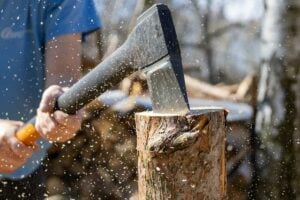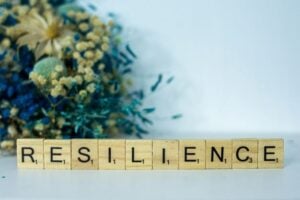Why now? With the theme of TMRE this year focused on the next era of insights, most may rightly assume that means a focus on all the new tools, trends, technologies, and methodologies in the market research ecosystem, as well as the evolution of AI in the industry. Of course, there are plenty of those topics featured in this year’s TMRE 2025 session and keynote program.
But we also wanted to make sure that we could focus on the diverse people that make up this community as we move into the next era. Diversity, equity and inclusion are important themes in market research after all, not only in actual research but in the operational aspects of both vendor- and client-side teams.
It seemed an ideal moment to recognize and reflect on the achievements of women working within the insights discipline. With the co-chairs of this year’s TMRE both women –Oksana Sobol, Vice President Consumer Insights, The Clorox Company, and Antoinette Staples, Senior Director, Customer Insights & Success, McKesson—the second annual Women in Insights Luncheon happening at the event, and a WiRE meetup also taking place, what better time to recognize the leadership and accomplishments of women.
All Things Insights also recently caught up with show co-chair Antoinette Staples to discuss her perspective as a leader in the insights community, the unique accomplishments and voices of women in market research, best practices, career advice and more. Click here for the story.
We asked women in the market research community several questions about their careers, their perspectives and experiences. How has your distinct perspective—especially as a woman in the insights field—contributed to your accomplishments and impact within the industry? Thank you to all those who participated. We hope you will find their perspectives valuable. They just might help shape and move your own insights journey forward.
Women Making an Impact
“Pausing to consider the customer’s perspective and journey is our key in delivering a product or service that connects most authentically with the audience. Understanding the business question, staying curious, and knowing which tool to leverage for a given business logic puzzle is where the insights function adds value. As a woman specifically, access to women-only or women-centric networking communities helps us prop each other up. Additionally, I place importance on learning different work styles and how our strengths play most effectively to one another to set my team up for the best results.
“I read an article many years back that put a spotlight on why people change jobs. People join a company for its mission and what it stands for; they leave most often because of their manager. When I read that powerful insight, my instant response was that I never wanted one of my direct reports—or anyone else for that matter—to leave a company because of me. Relationships matter. I keep that perspective in the foreground because we are all in this together. We’re on the same team, rallying around the same mission. If we can reach our goals in the most enjoyable way, we’re doing something right.
“I aim to stay plugged into the dialogue and stay connected to the community. I’ve never been an early adopter of technology, but staying aware and curious sets us up for success when the time is right.” —Raina Rusnak, Head of Market Research & Business Intelligence, StarKist Co.
“Ever since I was a young girl, I was always told that I asked ‘why?’ too much. I now realize that this inherent curiosity, the need for more depth, and intuition that there is more to know were strengths of mine—and strengths that have allowed me to thrive in my career, unlocking growth and meaning for the businesses I worked for.” —Sapna Mistry, Global Head of Customer Insights-B2B, HP
“Since I started my career as a marketer, I’ve often said in the past that I feel like an insights imposter! Fast forward 20-plus years later and my experiences, building insights-driven products and go-to-market solutions, have demonstrated three things:
“1. Instant Insights: The one constant as everything changes seems to be speed. How quickly can an insight be gained and how can that insight be scaled into an actionable solution? Time is of essence and as women leaders, especially after the pandemic, I have had to cope with a near ‘change-endemic’. With change the only constant, insights and solutions have to be delivered on-the-go.
“2. Authentic Moments: Just as speed is important, so is authenticity and accuracy. Having worked with companies like Amazon, some of their leadership principles like ‘Leaders are right’ epitomize the need for insights platforms to build trust, simultaneously battle incongruous perceptions and support leadership decision-making from moment to moment.
“3. Co-creation & Community: Rising costs and a lack of patient engagement have driven the healthcare sector (in which I work) to strive for affordability. AI and health tech holds promise but can drive exponential growth only if patient care is moved to new heights with insights. Building deep connections with patients through communities is an area, where we as women, can find and create opportunities for both personal and professional growth.” —Christina Speck, Author, Healthcare Fandom & Doctor of Public Health Candidate, Johns Hopkins University
“For me, being a woman and Latina brings a richness and depth shaped by culture and by balancing multiple roles in life (e.g., wife, mom, sister, business leader). That perspective has influenced how I approach insights and analytics. When I entered the field through a role measuring the marketing effectiveness on fragrances, I saw that even in something seemingly functional, the unlock at the time was investing in sensory assets which created an emotional connection with consumers. It underscored for me that buyers are multidimensional, holistic people. This is especially true today, when consumer values cut across categories and personalization is table stakes. I’ve carried forward that realization throughout my career, and it remains at the core of what I do because to serve consumers with the best propositions and create meaningful connections, we have to show that we truly understand them—all of them.” —Teresa Correa-Pavlat, Insights & Analytics Lead and AI-Agile Capabilities, Haleon
“I think being a woman in the insights field has been both helpful and impactful in a couple of ways. It has allowed me to bring a diverse perspective to both my work and leadership. It’s allowed me to ‘see the consumer’ in a more holistic way, balancing data with lived experiences and empathy. And it’s shaped my leadership style and how I elevate others. I’ve made it a priority over the years to mentor younger women and underrepresented colleagues in the industry which has helped them find their voice and build confidence.” —Jennifer Ng, GM, Advertiser Insights, The Trade Desk
“I believe relationships have been a driving force in my career in insights. Before diving into any strategy or methodology, I always ask myself: Do I have the right point of view? Have I brought in the right people? Do I understand our priorities and how our leaders define success?I find these answers by collaborating across functions and building strong connections with leaders throughout the business. As a woman in this space, I’d say this is even more important. Gaining buy-in early—before defining a strategic approach—makes it much easier to have productive conversations, especially with those who may be skeptical of a particular strategy.
“Having the ‘receipts’ to show why something matters across the business and then leveraging all the data and resources at our fingertips to find the answer, creates far more excitement and alignment. People want to be heard. They want their point of view included in the process. Taking this simple step accelerates adoption. And as my career continues to grow and evolve, these relationships become even more critical. Having that network is truly invaluable.
Reflecting on my career, leading with empathy has consistently been the most defining aspect of my leadership style. Being a woman in this field has come with its challenges—not necessarily because of the insights industry itself, but because of the broader expectations placed on women. We’re often balancing demanding careers with home life, all while managing the never-ending mental to-do list. I’m frequently called upon as the consumer expert across a wide range of functions, which means I need to understand how each team operates and how I can support them. That’s a lot to hold—especially on days when I’ve had just a few hours of sleep thanks to kids being up all night!
“But these experiences have shaped me. They’ve taught me how to build meaningful connections by truly understanding people. And that empathy has helped me move faster toward the ‘so what’—because I know what really matters to each function. It’s this blend of emotional intelligence, strategic insight, and relationship-building that defines my contributions as a leader and as a woman in the insights space today.” —Kasey Griesmer, Director of Global Consumer Insights and Analytics, New Balance
“For me, it all comes down to leading with empathy. I believe that impact and leadership starts with people—the team you build, the culture you foster and the space you create for ideas to thrive. When you have the right people around you, they generate bold, creative thinking. And when you have the right people and the right ideas, the resources will follow.
“As a woman in the insights field, I’ve leaned into that people-first mindset. I’m incredibly humbled by the team of insights professionals I work with every day at Opella. They are curious, creative and push past the status quo. They push each other, and me, to keep evolving our craft and our impact.
“I think that is where my perspective has made the biggest difference—in creating an environment where people feel empowered to challenge, to experiment, and to lead from wherever they sit. That’s how we drive better insights, stronger strategies, and ultimately more meaningful business outcomes.” —Karen Zappia, Sr. Director, Head of Insights Consumer Healthcare, North America, Sanofi Opella
“To me, a good researcher hears, analyzes, and reports. But a great researcher listens, connects, and tells stories. And to do that well, one needs empathy, the ability to see from different perspectives, and the courage to speak with a bold voice.
“Empathy is something women are often conditioned to develop early on. Living and working in multiple countries gave me the additional gift of understanding how differently people can view the same situation. It taught me to be mindful of biases—especially confirmation bias, which is so common in research.
“As both a woman and a researcher, finding a bold voice did not come naturally to me. I often preferred to observe quietly rather than speak up. But as I progressed in my career, I realized growth required me to use my voice. Over time, I came to see that my lived experiences and intersectionality—as a woman, a person of color, and someone from a different culture—are not just part of who I am, but the source of a voice that is both unique and authentic. Once I embraced that, I never looked back.” —Aarti Bhaskaran, Global Head, Research & Insights, Snap Inc.
“Being a Black woman in insights has profoundly shaped how I approach both my work and my leadership. It has strengthened my grit and sharpened my ability to navigate complexity with confidence. I’ve learned to remain persistent and solution-oriented, even in the face of challenges. It also drives me to approach consumer understanding with empathy —recognizing that lived experiences are layered and nuanced. All in all, this perspective has enabled me to deliver more impactful insights and lead teams with kindness, clarity, and curiosity —always grounded in purpose and driven by results.” —Delicia Cooney, Sr. Director, Consumer & Shopper Insights, Newell Brands
“Overwhelmingly, the insights industry has always had a lot of women in it on the supplier side. Early in my career it was easy to find female mentors within the marketing research companies I worked for. Having many male clients, I was able to see these women in action as they confidently delivered insights and recommendations on the projects we worked on. Moving to the client side was a different story.
“For the past 14 years, I’ve worked for companies in the meat industry which has historically been very male dominated. While inroads have been made with women rising in the corporate structure of these organizations, the majority of key stakeholders are often men. On the other hand, primary grocery shoppers and home cooks have historically been female dominant consumer domains; that too is changing to a more even split between genders. As someone who is still often the only woman in the room, I believe I bring an authentic voice of the consumer to the table and make sure it is heard within the proper context.
“Having had strong female mentors and colleagues in the first half of my career has helped me become a strong mentor and advocate for women throughout the male-dominated organizations I’ve worked in. I’m not afraid to speak up, because I’ve witnessed other women do so my entire career. Helping other women find their voice, whether they are working for me within insights or are working in other areas of the company has become a passion point. It has also helped me be seen more broadly as a leader within the organization, which has further opened up opportunities within my career.” —Karen Kraft, Associate Director, Consumer Insights & Analytics, Johnsonville
“Introducing innovation and new approaches can be challenging, particularly in the pharmaceutical industry where there are long-standing traditions and accepted ways of doing things. Throughout my career in insights and analytics, I’ve learned both productive and unproductive approaches to overcoming status quo bias. Through some tough learning experiences, I’ve discovered that empathy, traditionally perceived as a weakness, can be one of our most powerful tools in breaking down barriers and fostering successful outcomes.
“Understanding the perspectives and needs of key stakeholders is fundamental to building trust, leading change, and realizing greater impact for individuals, companies, and the industry. Rather than confronting traditional norms head-on, I have learned that acknowledging the value they provide, aligning with the goals and needs of stakeholders, and articulating how new approaches can better deliver the insights and success they seek is the most productive approach. Leading with empathy allows us to move more swiftly towards a win by respecting why others may hold on to what has served them well in the past and responding in ways that foster stronger relationships.
“As a woman, I have received feedback that empathy is a weakness, suggesting that I couldn’t make hard decisions because I cared too much. I haven’t found this to be true. Not only can I make tough decisions, but I can make them in a respectful way. Empathy lies at the heart of embracing diverse viewpoints, including those I may not immediately agree with. Indeed, part of being successful in introducing innovation is being open to acknowledging when a new technique isn’t right for the business problem at hand. This approach has enabled me to build inclusive and collaborative organizations, drive innovation, and create meaningful change in how we bring the voice of our customers into decision-making.
“Reflecting on my career, a key inflection point, was moving from being inwardly organizationally focused, to also being outwardly industry and community focused. Broadening my perspective profoundly shaped my leadership style and my contributions as a woman within the insights field. One of the most influential factors has been the encouragement I received from mentors and friends, mostly but not entirely all senior level women, to get involved in associations, academia, and communities of practice. This involvement has instilled in me a lifelong commitment to giving back, participating in the industry, mentoring others, and creating opportunities for the next generation.
“At the heart of my leadership style is the practice of servant leadership. I firmly believe that life is not a spectator sport; you get out of it what you put in. We learn more when we fully engage with other perspectives whether it be different industries, generations, or professions. And for me personally, there is no greater reward than making a difference in the lives of others by paying it forward, to help them advance and witnessing them achieve new heights. Just this past week, I saw a LinkedIn post featuring two industry award winners who were my former mentees. I couldn’t have been happier or prouder of their growth and the significant impact they’ve had on the industry.” —Lisa Courtade, Associate Vice President, Global Business Insights & Analytics, Organon
“I recognize the importance of inclusion, empathy, and radical candor and try to center them in what my team does at work. This includes things like ensuring that research participant pools are representative, that our research practices are not exclusionary, and that my team can have honest discussions about the impact of our work. I also center these principles in how I manage my team, make strategic decisions, and engage cross-functional partners.” —Yerusha Nuh, Staff UX Engineer & Co-Lead of Research Execution, Google
“My distinct perspective as a woman in the insights and quality field has been deeply shaped by resilience, transformation, and a global mindset. Having led complex value chains across five continents, I have seen how embedding quality, sustainability, and human rights into business strategy can not only safeguard products but also generate long-lasting trust with customers, suppliers, and communities.
“As Director of End-to-End Quality at Importaco, I spearheaded the creation of a pioneering Quality in Origin Department that ensures transparency and food safety from farmers to final customers and consumers. This initiative, supported by more than 250 preferred suppliers worldwide, is more than a system—it is a cultural shift toward responsibility, collaboration, and innovation. Through this work, we are driving predictive models in agroscience, strengthening partnerships with key stakeholders across the FMCG and food industry, and building resilience in the face of climate and supply chain risks.
“Being a woman in this industry has given me a distinct lens: the ability to balance rigor with empathy, data with culture, and global strategy with local realities. My journey through entrepreneurship, corporate leadership, and transformation projects has taught me that true leadership is not only about delivering results, but also about creating ecosystems of trust, inclusion, and impact. Ultimately, my perspective has allowed me to turn challenges into opportunities, scars into strengths, and to leave a legacy of quality that protects people, products, and the planet.” —Monica Molero, End to End Value Chain Quality Director, Importaco Nuts
“Curiosity, empathy, and humility are key to understanding people. Throughout my career, I’ve learned to tell stories that resonate with audiences who often have little to no common ground with the consumer we’re discussing. By framing insights in a way that builds empathy, I’ve been able to help even the most distant audiences connect and understand.
“I remember presenting to a room of 20-plus senior male executives about the experience of being a female beer consumer. They were fully engaged, not because I am a woman but because I’ve spent much of my career as the only woman in the room. That experience has shaped how I approach insights. I’ve learned how to help others see my perspective, to bridge gaps in understanding and to build empathy where it doesn’t come naturally. Being a woman in insights has sharpened this capability, it has taught me that empathy is not just about understanding consumers but also about helping colleagues and stakeholders expand their perspectives. When that happens, action, and real impact follows.” —Colleen Funkey, Owner, Grey Zebra Consulting
Contributor
-
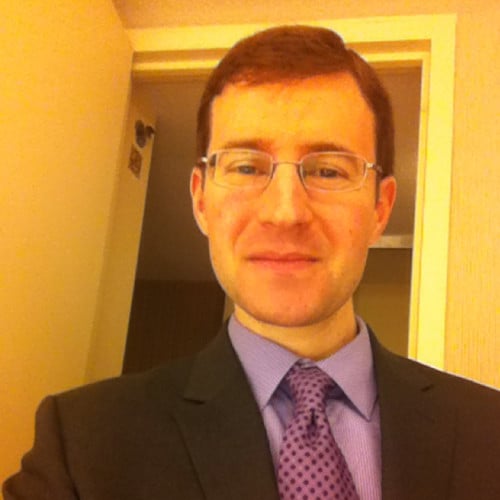
Matthew Kramer is the Digital Editor for All Things Insights & All Things Innovation. He has over 20 years of experience working in publishing and media companies, on a variety of business-to-business publications, websites and trade shows.
View all posts












